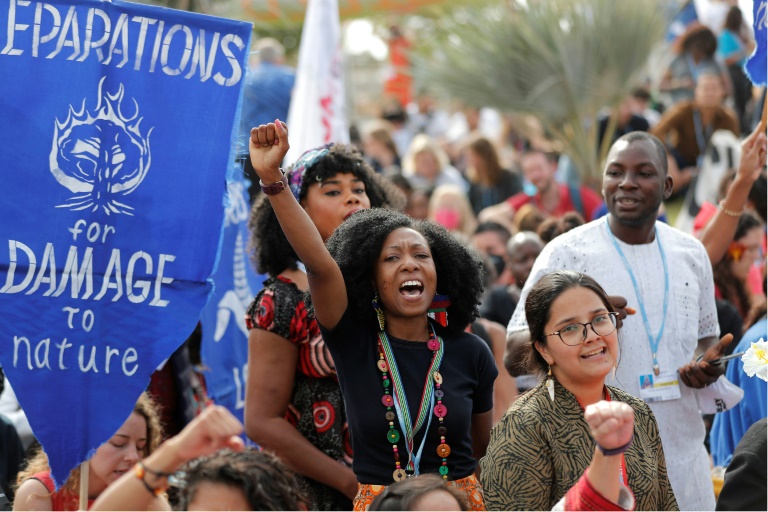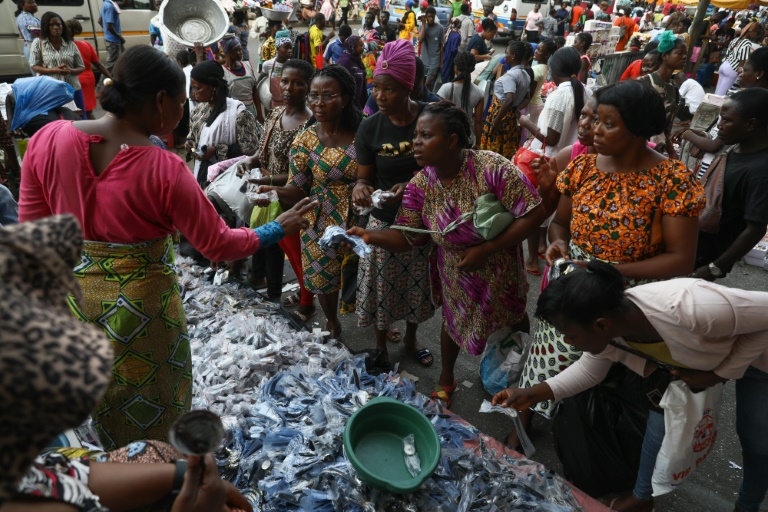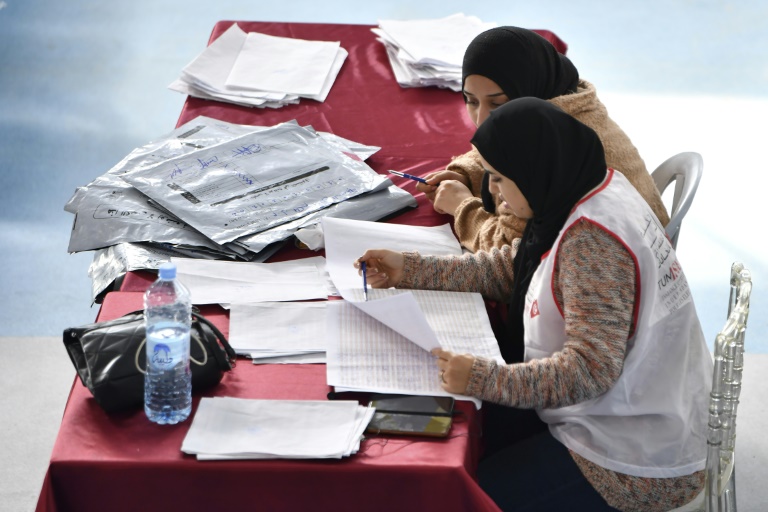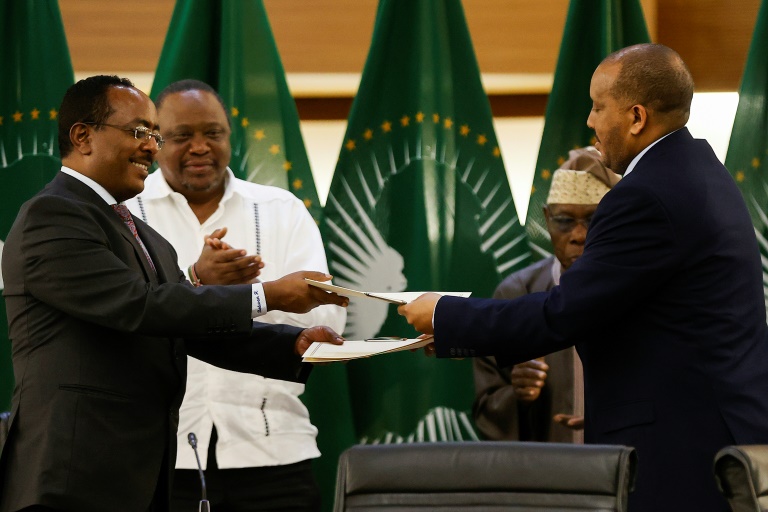Climate activists protest outside the COP27 climate conference in Egypt
UN climate talks were extended by a day Friday in an effort to break deadlock as nations tussle over funding for developing countries battered by weather disasters and ambition on curbing global warming.
Representatives from nearly 200 countries have gathered at the COP27 in Egypt for two weeks with the aim of driving forward action on climate change as the world faces a worsening onslaught of weather extremes.
But wealthy and developing nations were struggling to find common ground on creating the fund, and on a host of other crucial issues, with only hours before the summit was scheduled to end in the Red Sea resort of Sharm el-Sheikh.
Egyptian Foreign Minister Sameh Shoukry, who chairs the COP27 talks, told delegates that the negotiations would spill into Saturday, a delay not unusual in such sprawling UN climate talks.
“I remain concerned at the number of outstanding issues,” he said.
The daunting list of tasks includes finding agreement on reaffirming a goal to limit average warming to 1.5 degrees Celsius from pre-industrial levels, which scientists say is a safer guardrail to avoid the most dangerous impacts.
Rich countries are also under pressure to finally fulfil promises to provide $100 billion a year to help developing countries green their economies and adapt to future impacts, and to hammer out future finance plans.
But for many vulnerable countries the defining issues at the conference is money for the “loss and damage” caused by climate change — a controversial issue previously blocked by wealthy countries fearful of open-ended liability.
– ‘Crunch time’ –
A cascade of climate-driven extremes in recent months — from floods in Pakistan and Nigeria to heatwaves and droughts across the world — have shone a spotlight on the ferocious impacts of a warming world for emerging economies as well as small island states threatened by sea level rise.
The G77 and China bloc of 134 developing countries launched an opening gambit this week, a proposal to create a loss and damage fund at COP27, with operational details to be agreed later.
A compromise response from the European Union, proposed late Thursday, suggested a fund specifically for the most vulnerable nations.
The EU proposal indicated that the bloc has “shifted significantly”, said Rachel Cleetus, lead economist at the Union of Concerned Scientists’ climate programme.
But she said the United States and China, the world’s two biggest polluters, “can really unlock this”, fresh from a thaw in their climate relations after a meeting between Presidents Joe Biden and Xi Jinping earlier this week in Bali.
“It’s crunch time,” Cleetus told AFP. “There’s no time anymore for the US to sit on the sidelines.”
Cleetus added that China should also make its position clear, particularly on the issue of whether it would contribute to such a fund and pledge not to draw from it.
– ‘Our final offer’ –
European Commission Vice President Frans Timmermans told reporters on Friday that the EU offer had two “very important” conditions that differ from the G77 proposal.
It should be for “the most vulnerable” nations, he said, and the money should come from a “broad funder base” — code for countries including China that have become wealthier since they were listed as developing countries in 1992.
“I have to say this is our final offer,” Timmermans said.
Pakistan’s climate minister Sherry Rehman, whose country chairs G77+China, expressed a willingness for “working with each other to find common ground”.
“It is up to all of us to steer a path that sends a powerful message from this COP that the implementation COP actually turned into a historic actionable COP,” she said.
She said the G77 had zeroed in on one of the options put forward in a draft loss and damage text “with a few changes that have been submitted and we are working on with each other”.
Timmermans said he had explained the EU proposal to US delegates who were “very interested in seeing” the 1.5C target reaffirmed.
Vulnerable nations, small island states and many wealthy emitters have stressed the need to maintain the goal of limiting warming to 1.5C, while observers are calling for stronger language in the final COP27 statement on curbing planet-heating fossil fuels.
Even with new commitments, the world is on track to heat up by about 2.5C by the end of the century — enough, scientists say, to trigger dangerous climate tipping points.
With tight restrictions on demonstrations, several dozen activists on Friday protested inside the venue, holding signs demanding rich countries “pay up for loss and damage”.










